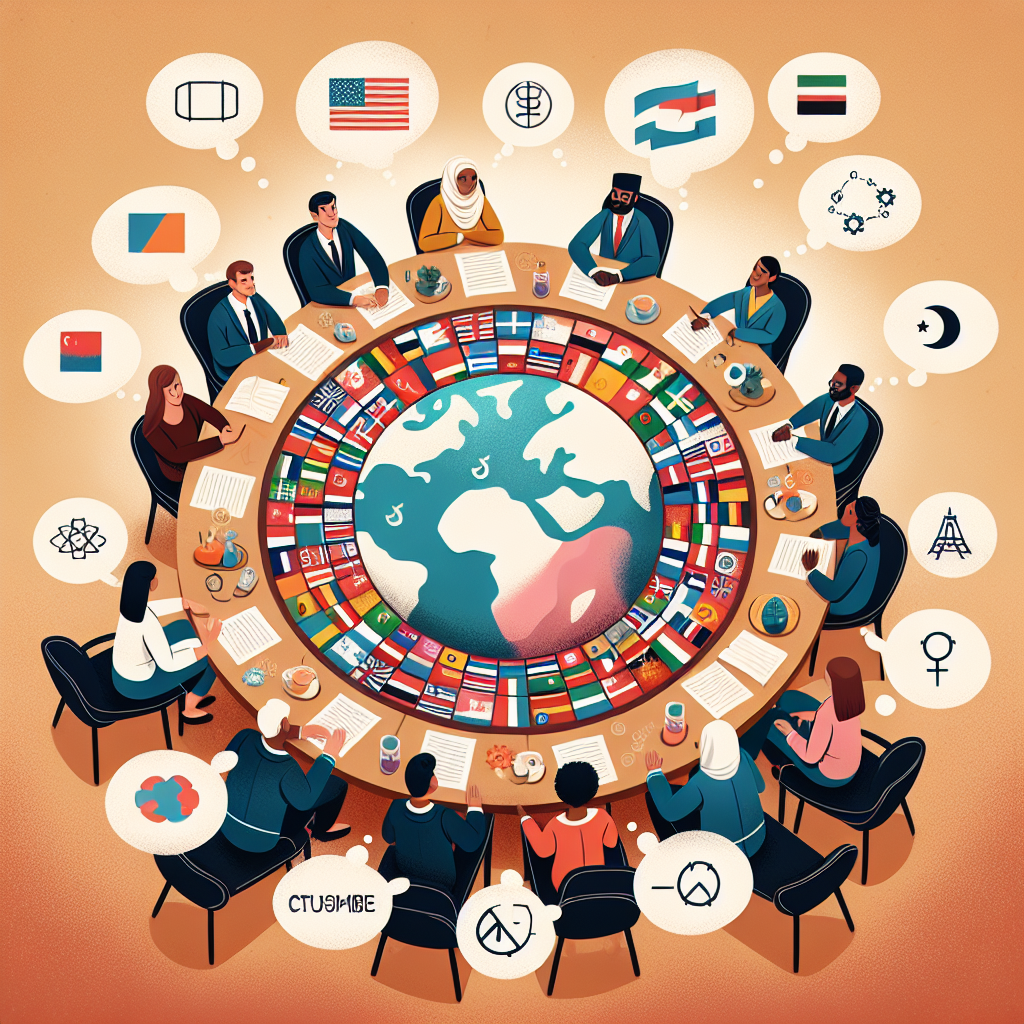Cross-Cultural Negotiation Strategies

Mastering International Negotiation: Expert Tactics
Understanding the Importance of Effective Negotiation Tactics in the International Business World
In today’s globalized business landscape, effective negotiation skills are crucial for success. As companies expand their operations to different countries and cultures, the ability to negotiate effectively with international counterparts becomes essential. Cross-cultural negotiations require a different approach than traditional negotiations, as they involve navigating language barriers, cultural differences, and varying communication styles.
Cultural Differences and Its Impact on Negotiation Strategies
One of the key factors to consider in cross-cultural negotiations is the impact of cultural differences. Each culture has its own set of values, beliefs, and communication styles, which can greatly influence the negotiation process. For example, in some cultures, it is considered rude to directly say “no” or disagree with someone, while in others, direct and assertive communication is valued. Understanding these cultural differences and adapting one’s negotiation style accordingly is crucial for success.
Building Trust and Rapport: The Foundation of Successful International Negotiations
Trust and rapport are essential elements in any negotiation, and even more so in cross-cultural negotiations. Building trust and establishing a good rapport with your international counterparts can help bridge communication and cultural gaps, leading to more effective negotiations. This can be achieved through active listening, showing empathy and respect, and taking the time to understand the other party’s perspective.
Preparing for Negotiations: Researching the Other Party and Setting Clear Objectives
Before entering into any negotiation, it is essential to do thorough research on the other party. This includes understanding their culture, business practices, and negotiation style. By doing so, you can anticipate their expectations and potential challenges, allowing you to tailor your approach accordingly. Additionally, setting clear objectives and understanding your bottom line is crucial in any negotiation, as it provides a framework for your actions and decisions.
Communication Techniques for Effective International Negotiations
Effective communication is at the heart of successful negotiations. In cross-cultural negotiations, it is crucial to pay attention to both verbal and nonverbal cues. It is also essential to be aware of your own communication style and adapt it to meet the needs of your international counterparts. This may involve using simpler language, avoiding jargon, and being mindful of cultural norms and taboos.
The Art of Compromise: Finding Win-Win Solutions in International Negotiations
Compromise is often necessary in any negotiation, and cross-cultural negotiations are no exception. However, the concept of compromise may vary in different cultures. For example, in some cultures, a compromise may involve finding a middle ground, while in others, it may be seen as a sign of weakness. Understanding these differences and finding creative solutions that benefit both parties is essential in cross-cultural negotiations.
Dealing with Difficult Negotiation Tactics: How to Remain Calm and Assertive
In any negotiation, there may be difficult tactics used by the other party to gain an advantage. This can be even more challenging in cross-cultural negotiations, as these tactics may be rooted in cultural norms and values. It is crucial to remain calm and assertive in these situations and not let emotions take over. This can be achieved through effective communication, setting boundaries, and maintaining a professional demeanor.
Navigating Ethical and Legal Considerations in International Negotiations
International negotiations also bring up ethical and legal considerations that may not arise in domestic negotiations. It is essential to be aware of cultural differences in ethical standards and legal frameworks and ensure that any agreements reached align with both parties’ values and laws. Consulting with a legal expert or cultural consultant can be beneficial in navigating these considerations.
The Role of Technology in Streamlining International Negotiations
Technology has greatly impacted the way international negotiations are conducted. With the rise of video conferencing and remote work, negotiations can now take place without the need for in-person meetings. However, it is crucial to consider the potential challenges and limitations of technology in cross-cultural negotiations, such as language barriers and technical difficulties. Utilizing technology effectively can help streamline the negotiation process and bridge communication gaps.
Continuing to Develop and Refine Your International Negotiation Skills
Negotiation skills, like any other skill, can be developed and refined over time. As the world becomes more interconnected, the ability to negotiate effectively in cross-cultural situations will only become more critical. Continuously learning about different cultures and their communication styles, reflecting on past negotiations, and seeking feedback can all help improve and refine one’s international negotiation skills.



